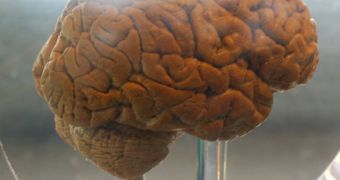The thing that makes us human is our self-awareness and the fact that we are able to identify our present selves with our “old” ones. This means that every action we have carried out since we were born is part of who we are and also shapes our future development, even if some of us are ashamed to admit it. We have all done things we’re not very proud of, but maybe some of them are the reason we have come to be the persons we are today.
One of the earliest works on the matter, John Locke's Essay Concerning Human Understanding, whose first edition was published in 1690, comes to differentiate our self, as in the soul, from our bodies, the vessels that we command. The savant sent copies of his book to numerous colleagues, hoping to get their perspective on the things he wrote.
As one of his correspondents drew attention to the fact that our life was continuous and that its various stages were not independent from each other, Locke published a second edition of the Essay, in which he coined the term “consciousness,” meant to denote the continuity of an individual's soul. That is to say, consciousness is what makes the baby, the teenager, the adult, and the elder the same person, at least in his or her own eyes.
German philosopher Immanuel Kant later wrote that the existence of one's self was absolutely necessary, if individuals were to live and judge experiences, and that the inner form of one's mind was also the “headquarters” of all thinking processes, of reasoning and of comparison. He shared that the self was where all the assessments of the individual itself and of actions, events and other people around it were processed.
The religious dogma, which held that the self was actually a person's immortal soul, reigned supreme for several centuries, and, until Locke, no one even dared raise the question as to the validity of this claim. Sill, after his Essay, the scientific way of thinking changed drastically in less than a century, and the “truths” that had once been held so dear were discarded in favor of careful and skeptical observations.
What's a bit disconcerting at this point is the fact that even modern neuroscience has yet failed to shed some light on the concept of self and what it represents, and hasn’t gone further in analyzing the issue than the Ancient Greeks, the Renaissance philosophers, or the modern German thinkers did. The one thing that remains universally valid is the fact that without the concept of soul, or one's self, Freud and his psychoanalysis would be meaningless.

 14 DAY TRIAL //
14 DAY TRIAL //